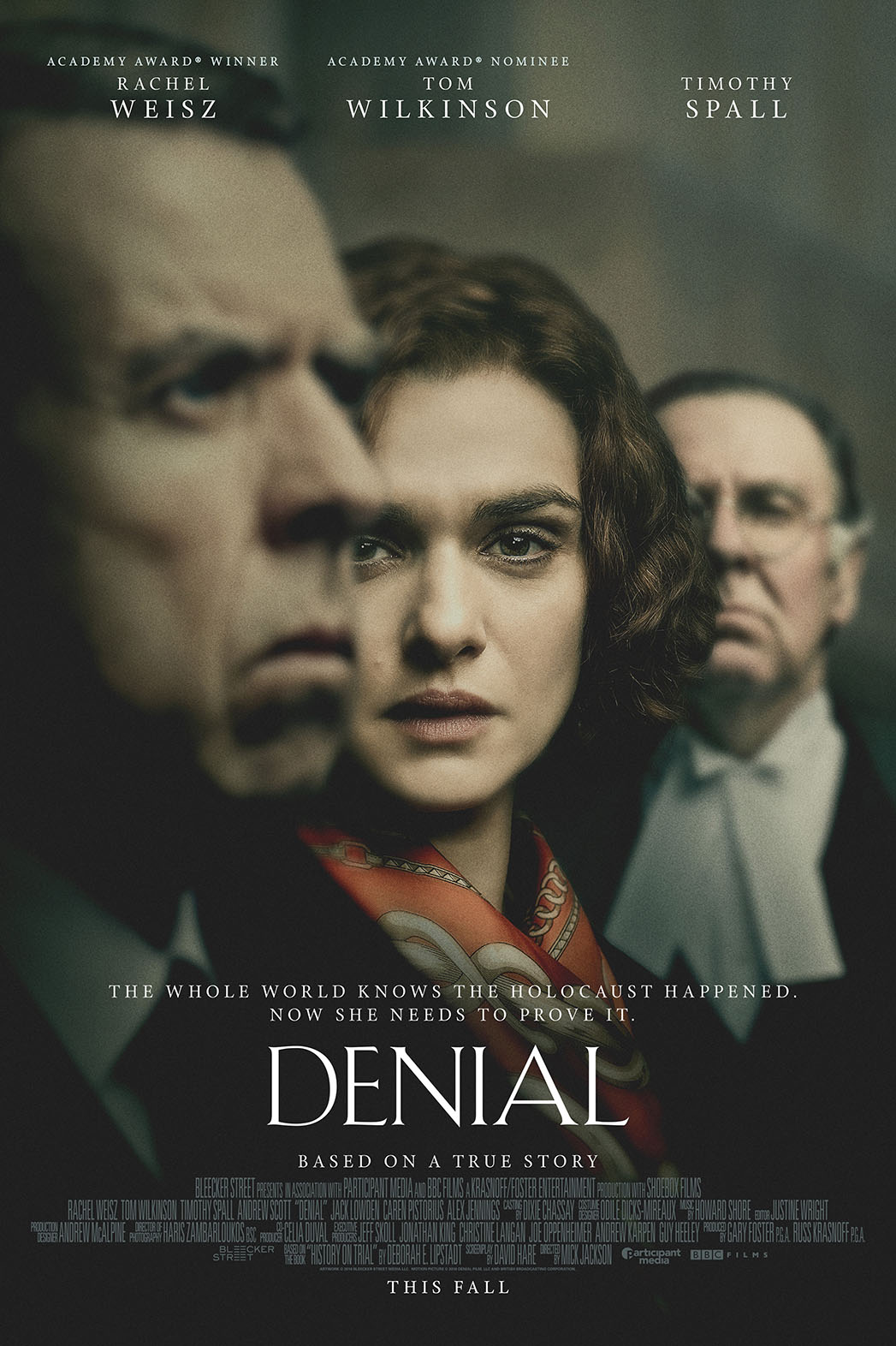Denial
Posted on October 6, 2016 at 5:50 pm

The experience in question, in the most literal sense of the term, is the Holocaust. David Irving (Timothy Spall, all oily charm), a British self-described historian, wrote and lectured widely about his view that Hitler never ordered the killing of Jews in concentration camp and that in fact there were no gas chambers used for mass executions of Jewish prisoners. He was intentionally offensive — in both sense of the word. He said:
Ridicule alone isn’t enough, you’ve got to be tasteless about it. You’ve got to say things like ‘More women died on the back seat of Edward Kennedy’s car at Chappaquiddick than in the gas chambers at Auschwitz.’ Now you think that’s tasteless, what about this? I’m forming an association especially dedicated to all these liars, the ones who try and kid people that they were in these concentration camps, it’s called the Auschwitz Survivors, Survivors of the Holocaust and Other Liars, ‘ASSHOLs’. Can’t get more tasteless than that, but you’ve got to be tasteless because these people deserve our contempt.
And he took his case to the classroom of a professor who specialized in the Holocaust, Emory’s Deborah Lipstadt (Rachel Weisz, feisty but thoughtful, with a red perm, bright scarves, and a Queens accent), to confront her in person, without notice but with a video camera. She refused to debate him, saying that it would legitimize his arguments. And she described him in her book, Denying the Holocaust: The Growing Assault on Truth and Memory, as:
one of the most dangerous spokespersons for Holocaust denial. Familiar with historical evidence, he bends it until it conforms with his ideological leanings and political agenda. A man who is convinced that Britain’s great decline was accelerated by its decision to go to war with Germany, he is most facile at taking accurate information and shaping it to confirm his conclusions.
He wanted more than a classroom confrontation after that. He filed a lawsuit against Lipstadt and her publisher, and he filed it in England, where the laws are more favorable for plaintiffs in libel cases. In the US, the person filing the suit has to prove his or her case. In the UK, it is up to the defendant to prove the truth of the statements made. In cinematic terms, the legal and physical setting heightens the inherent courtroom drama — all the wigs and posh accents and strangeness of the rules boost the theatricality of the presentation, especially after Lipstadt learns that neither she nor the Holocaust survivors who are vitally concerned with the trial will be allowed to testify. For Lipstadt, not being permitted to use her voice was a whole separate category of denial.
This is a compelling courtroom drama that goes to the deepest questions not just of Holocaust history or any history but of how we know what we know and who we believe. It is always tempting to say “let’s listen to both sides.” But as the late Daniel Patrick Moynihan used to say, “Everyone is entitled to his own opinion, but no one is entitled to his own facts.” The meticulous combing of Irving’s work to check footnotes and translate original documents (funded by Steven Spielberg and other donors) proved that Irving’s “conclusions” were based on misrepresentation. The meticulous combing of his shelves and shelves of diaries proved his bias. This is a compelling drama and an urgent reminder of the importance of rigorous challenges to unsubstantiated, malicious “history.”
Parents should know that this film deals with the Holocaust, with references to genocide and ethnic bigotry. It includes social drinking and some strong language.
Family discussion: What evidence would you want to see if you were the judge in this case? Should Professor Lipstadt have testified?
If you like this, try: This C-SPAN program about the trial, featuring Irving and Lipstadt and the website that includes the trial documents

